Introduction
Teeth cleaning is an essential part of maintaining oral hygiene, helping to prevent gum disease, cavities, and other dental issues. However, many people experience discomfort and wonder how to relieve pain after teeth cleaning. Whether it’s soreness in the gums or sensitivity in the teeth, knowing the best remedies can help reduce discomfort.
In this article, we’ll explore how to relieve pain after teeth cleaning by looking at effective home remedies, over-the-counter solutions, and professional treatments. With these methods, you can address discomfort quickly and enjoy the benefits of a freshly cleaned smile.
Table of Contents
- Introduction
- Common Causes of Pain After Teeth Cleaning
- Home Remedies to Relieve Pain After Teeth Cleaning
- Over-the-Counter and Professional Solutions
- Best Practices for Preventing Pain After Teeth Cleaning
- When to See a Dentist for Persistent Pain After Teeth Cleaning
- Post-Cleaning Care for Long-Term Oral Health
- Frequently Asked Questions About Pain After Teeth Cleaning
- Conclusion
Common Causes of Pain After Teeth Cleaning
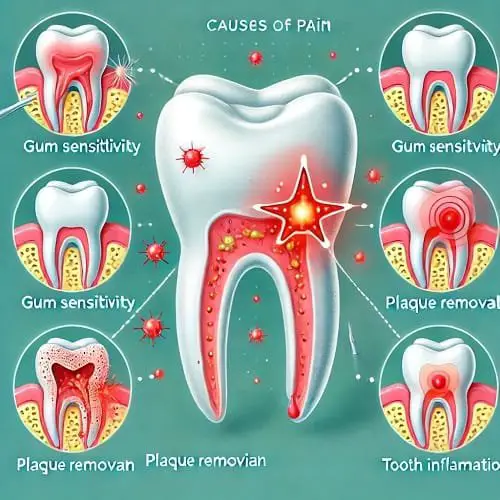
To understand how to relieve pain after teeth cleaning, it’s important to know what causes the discomfort. Several factors can contribute to the pain or sensitivity you feel after a professional dental cleaning.
- Gum Sensitivity: Gums can feel tender after a cleaning due to the removal of plaque and tartar. This often leads people to seek ways to relieve pain after teeth cleaning.
- Tooth Sensitivity from Plaque Removal: As plaque and tartar are removed, the newly exposed tooth surfaces can become sensitive. Understanding this is crucial when learning how to relieve pain after teeth cleaning effectively.
- Inflammation After Scaling: Deep cleaning or scaling can leave the gums slightly inflamed, which is another reason people want to know how to relieve pain after teeth cleaning.
Once you understand the cause, it’s easier to find remedies for how to relieve pain after teeth cleaning and ensure a quick recovery.
Home Remedies to Relieve Pain After Teeth Cleaning
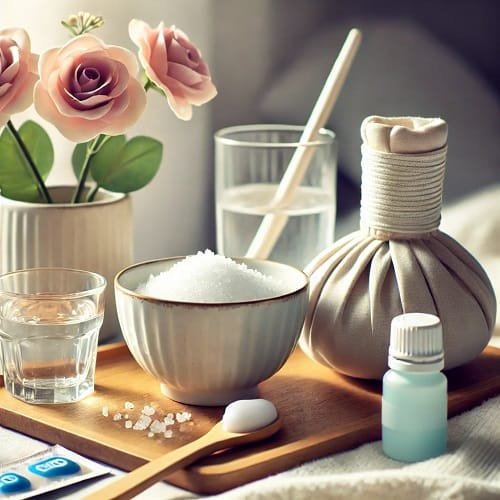
One of the most effective ways to understand how to relieve pain after teeth cleaning is to look at common home remedies that soothe sensitive teeth and gums.
1. Warm Salt Water Rinse
A warm salt water rinse is a time-tested remedy for relieving gum pain and swelling after teeth cleaning. To use this method, dissolve a teaspoon of salt in a glass of warm water and gently swish it in your mouth. This remedy works because salt has natural anti-inflammatory properties, making it a helpful solution for those looking for how to relieve pain after teeth cleaning at home.
2. Cold Compress
If your gums feel swollen or tender after a cleaning, applying a cold compress can help reduce both pain and inflammation. This is one of the easiest and quickest ways to find relief for how to relieve pain after teeth cleaning. Simply wrap some ice in a cloth and apply it to your cheek near the affected area for 15-20 minutes at a time.
3. Sensitive Toothpaste
Using a sensitive toothpaste designed for how to relieve pain after teeth cleaning can make a big difference. These toothpastes contain ingredients like potassium nitrate, which help block the nerve signals that cause sensitivity. Switching to a sensitive toothpaste a few days before and after your cleaning can help relieve tooth pain.
4. Over-the-Counter Pain Relief
If home remedies aren’t enough, consider taking over-the-counter pain relievers like ibuprofen or acetaminophen. These medications reduce inflammation and can be an excellent way to relieve gum soreness and tooth sensitivity. This is a reliable option when seeking how to relieve pain after teeth cleaning using more advanced methods.
5. Avoid Hot or Cold Foods
To avoid aggravating sensitive teeth after cleaning, it’s best to stay away from hot or cold foods for at least 24 hours. Understanding how to relieve pain after teeth cleaning means knowing which foods to avoid to prevent further discomfort.
By following these home remedies, you can find effective ways of how to relieve pain after teeth cleaning, ensuring that discomfort is minimized.
ALSO READ
Root Canal Recovery: A Comprehensive Guide for a Smooth Healing Process
How to Get Relief from Extreme Tooth Pain Can’t Sleep? A Helpful Guide
Can I Drink Milk After Tooth Extraction? Harmful or Helpful
How Long Until a Tooth Infection Kills You?
Over-the-Counter and Professional Solutions
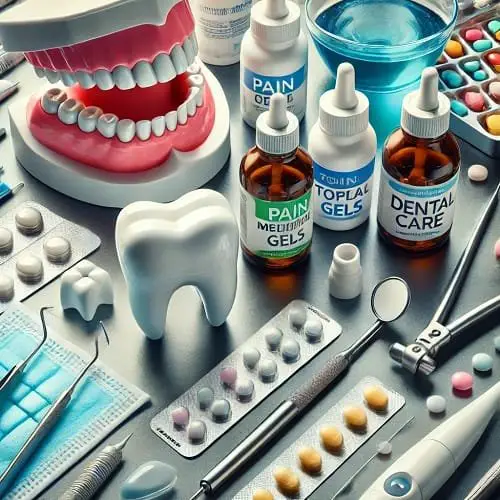
Sometimes home remedies alone might not be enough for how to relieve pain after teeth cleaning, and stronger solutions are required.
1. OTC Pain Relievers
Over-the-counter medications, such as ibuprofen, can be highly effective for managing pain and inflammation after a dental cleaning. These pain relievers are often recommended by dentists for those wondering how to relieve pain after teeth cleaning when other methods don’t work as well. Follow the advised dosage carefully and avoid taking more than necessary.
2. Topical Gels
Topical gels containing benzocaine can numb sore gums and provide immediate relief. These gels are often found at pharmacies and can be an excellent addition to your pain relief regimen if you are looking for how to relieve pain after teeth cleaning effectively.
3. Consulting a Dentist
If pain persists beyond a few days, it’s essential to consult your dentist. Knowing how to relieve pain after teeth cleaning can sometimes require professional insight, especially if an underlying issue like infection or gum disease is present. Your dentist may offer treatments such as fluoride varnishes or desensitizing gels for long-term relief.
These solutions can help manage even the most persistent discomfort after a dental visit, making it easier to know how to relieve pain after teeth cleaning effectively and quickly.
Best Practices for Preventing Pain After Teeth Cleaning
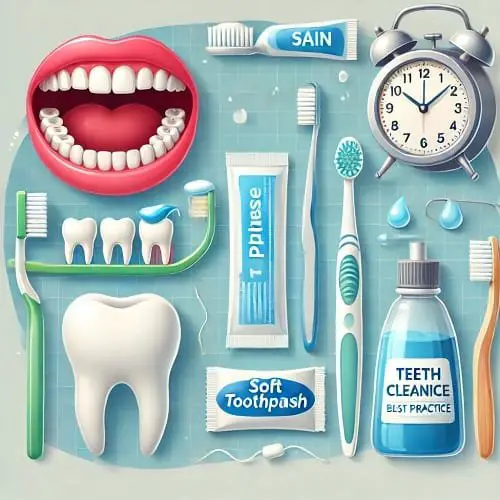
While it’s important to understand how to relieve pain after teeth cleaning, preventing pain before it starts is even better. Incorporating some preventive measures into your daily routine can reduce the chances of discomfort.
1. Regular Use of Desensitizing Toothpaste
One of the most effective strategies for preventing post-cleaning pain is regularly using desensitizing toothpaste. This helps build protection over sensitive areas of your teeth, minimizing discomfort during and after cleanings. If you’ve wondered how to relieve pain after teeth cleaning, this preventive measure can make a big difference.
2. Brush and Floss Gently
Aggressive brushing can irritate gums and make them more sensitive after a cleaning. To prevent this, use a soft-bristled toothbrush and gentle brushing techniques, ensuring that you don’t cause gum irritation. Learning how to relieve pain after teeth cleaning includes understanding proper brushing habits that prevent future discomfort.
3. Avoid Acidic Foods
Acidic foods can erode tooth enamel, leading to greater sensitivity. After a cleaning, it’s a good idea to avoid foods like citrus fruits or sodas. Understanding how to relieve pain after teeth cleaning often involves knowing what to avoid in your diet to minimize pain.
By following these preventive tips, you can lessen the likelihood of needing to worry about how to relieve pain after teeth cleaning in the future.
When to See a Dentist for Persistent Pain After Teeth Cleaning
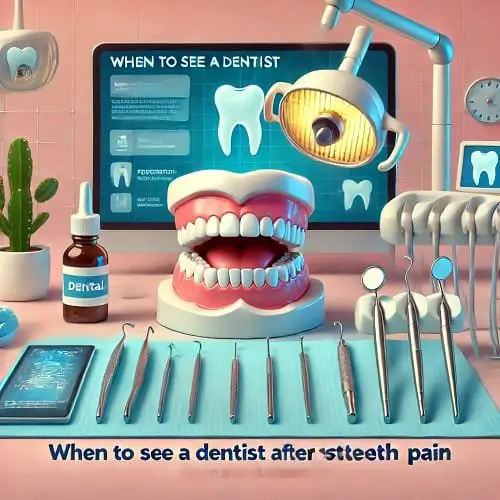
While it’s common to experience mild discomfort after a teeth cleaning, there are cases where pain may persist beyond a few days. If you notice the discomfort lasting longer than a week, or if the pain worsens, it’s essential to consult a dentist. Persistent pain may be a sign of underlying issues such as an infection, damaged enamel, or even gum disease that requires professional treatment.
In these situations, your dentist can provide a more in-depth evaluation and recommend specific treatments, such as fluoride applications or prescription-strength pain relievers, to help address the issue. Knowing how to relieve pain after teeth cleaning is important, but it’s equally crucial to recognize when the pain is more than temporary and requires expert attention.
Post-Cleaning Care for Long-Term Oral Health
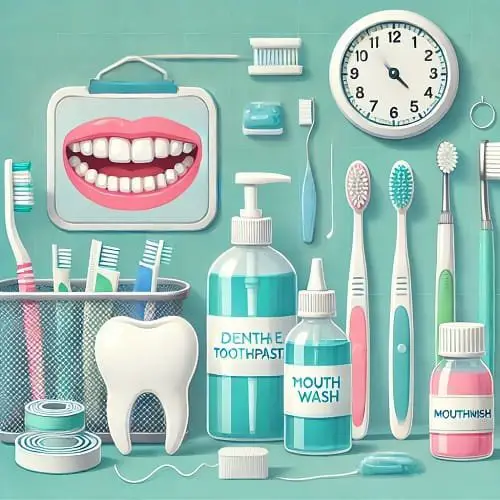
Maintaining a consistent oral care routine after a dental cleaning is essential for preventing future pain and ensuring long-term oral health. Brushing twice a day with fluoride toothpaste, flossing daily, and using an antimicrobial mouthwash can keep your teeth and gums healthy between professional cleanings. These habits help prevent plaque buildup, reduce gum inflammation, and minimize the chances of tooth sensitivity. In addition, regular dental checkups are crucial for catching any potential issues early. By following these best practices, you can reduce the risk of post-cleaning pain and enjoy a healthier, brighter smile with each visit. Understanding how to relieve pain after teeth cleaning is important, but consistent care will help prevent discomfort in the first place.
Frequently Asked Questions About Pain After Teeth Cleaning
Q: How long does pain last after teeth cleaning?
A: Pain after teeth cleaning usually lasts for a day or two. If you’re wondering how to relieve pain after teeth cleaning, the good news is that most discomfort resolves quickly with simple home remedies and over-the-counter solutions.
Q: What are the best ways to relieve tooth pain after a dentist visit?
A: The best ways to relieve pain after teeth cleaning include using sensitive toothpaste, applying cold compresses, and taking over-the-counter pain relievers. Knowing how to relieve pain after teeth cleaning also involves avoiding extreme temperatures in your food and drinks.
Q: Is swelling after teeth cleaning normal?
A: Mild swelling can occur after deep cleaning. For those seeking how to relieve pain after teeth cleaning, applying a cold compress and taking anti-inflammatory medications can help reduce swelling.
Q: Can sensitive teeth after cleaning be prevented?
A: Yes, using sensitive toothpaste and adopting a gentle brushing technique can help prevent discomfort. Knowing how to relieve pain after teeth cleaning often involves preventive steps to avoid future pain.
Conclusion
If you’ve been wondering how to relieve pain after teeth cleaning, the answer lies in a combination of home remedies, over-the-counter solutions, and preventive care. By understanding the causes of post-cleaning discomfort and taking action, you can ensure a pain-free experience after every dental visit. Whether you’re applying cold compresses or using sensitive toothpaste, there are plenty of effective ways to manage how to relieve pain after teeth cleaning and keep your smile healthy.






